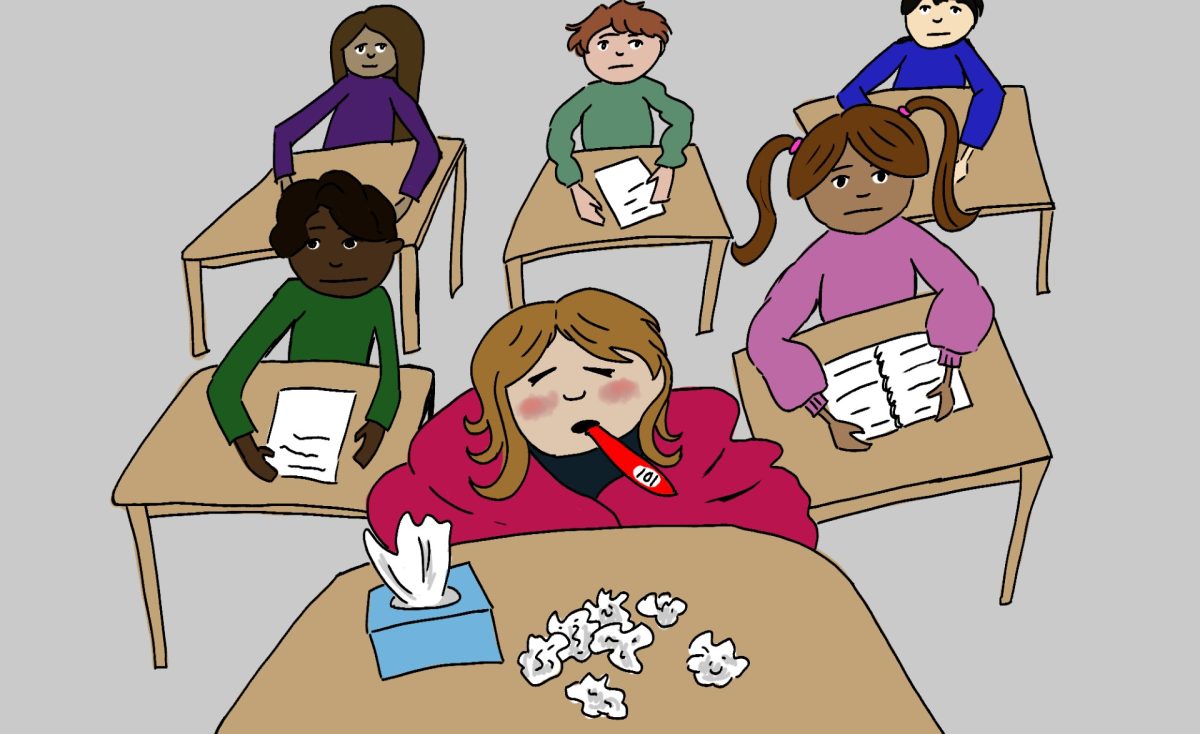This semester, there are few restrictions in place at Ithaca College to control the spread of COVID-19. This lack of clear regulations lends itself to a campus that is at high risk for both COVID-19, and in general, an unwell student body.
Students who test positive and live on campus are expected to isolate themselves in their dorm rooms for a minimum of five days and until they have not had a fever for 24 hours. While this period of isolation is encouraged, there is no method for reporting a positive test or a way to mandate quarantine. Having students stay in their dorms fails to take into account pressing issues for students, like getting food during quarantine, protecting roommates’ health and notifying others after testing positive.
Additionally, there are no longer free COVID-19 tests provided through the school, which could lead to fewer students testing when they are sick. The college has placed the financial and moral responsibility of handling COVID-19 on students’ shoulders without proper guidance.
In previous years, there were stricter COVID-19 regulations and restrictions in place to protect the health of the campus community. Upon reopening campus for the Spring 2021 semester, the college created a Return to Campus Plan detailing a host of measures to keep the campus community safe, including maintaining physical distance, reserving Emerson Hall for quarantine and requiring face coverings in public spaces. While some of these measures may seem severe given the development of COVID-19 and vaccinations, COVID-19 is not gone — it is ever present on campus, whether the college acknowledges it or not.
Furthermore, faculty members are no longer required to provide dual instruction for students who test positive. While it is understandable that professors are busy with in-person instruction, students should not have to choose either their health or their academics. This lack of academic support could encourage students to go to class when they are sick, or even avoid testing for COVID-19 in the first place so they are not at risk for falling behind.
A culture is being cultivated across campus that lacks concern for students’ well-being, prioritizing productivity and ease over health and safety. To combat this, the college must come up with a clear process for students to follow if they test positive or if a close contact, like a roommate, tests positive.
The college must also invest in resources like providing free COVID-19 tests and medicine so students can address their health concerns without worrying about the financial implications. Finally, the college should encourage faculty to have grace for students by adjusting the attendance policy to consider COVID-19 and supporting the use of Zoom as needed. If the college wants to be student-centered, the administration must reinforce clear COVID-19 guidelines and provide necessary resources for students.














